Curriculum Subjects
07 May 2019
English
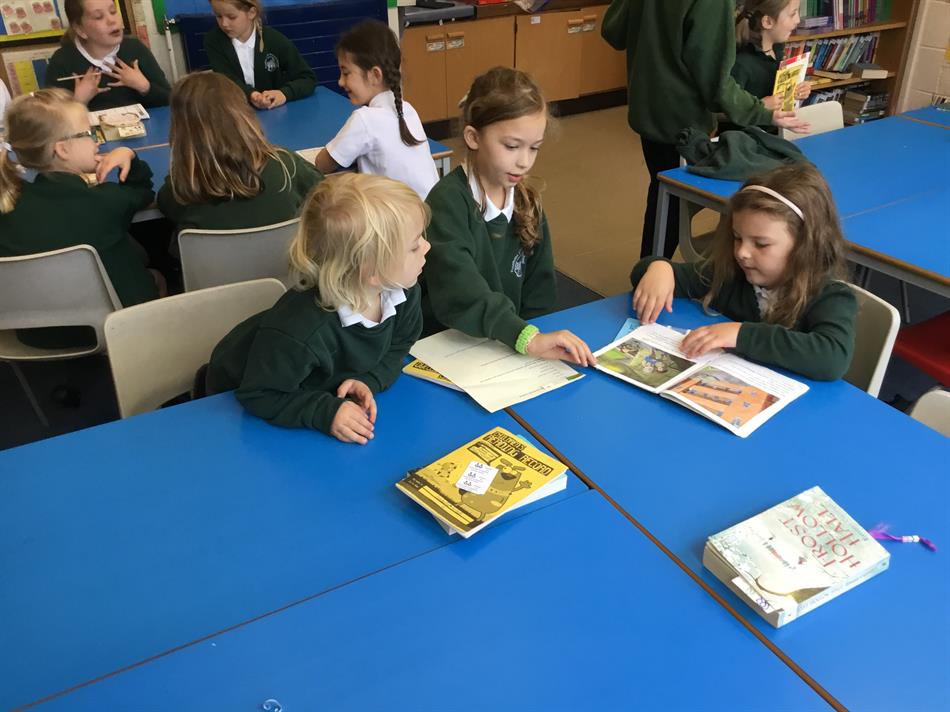
Our Federation believes that a high-quality English curriculum, which develops learning and results in the acquisition of knowledge, will give our children the skills they need to flourish in all areas of the curriculum and in life beyond education.
We teach children how to read fluently with good understanding; how to write and communicate ideas coherently for a range of audiences and purposes; and the art or oracy.
Our English curriculum has high quality literature at its heart. This allows children to develop a wide range of vocabulary, as well as delve into and appreciate our rich literacy heritage. With literature at the heart of what we do, it means we develop avid, intelligent and capable readers, as well as thoughtful, confident and engaging writers.
Statement of intent and implementation
Reading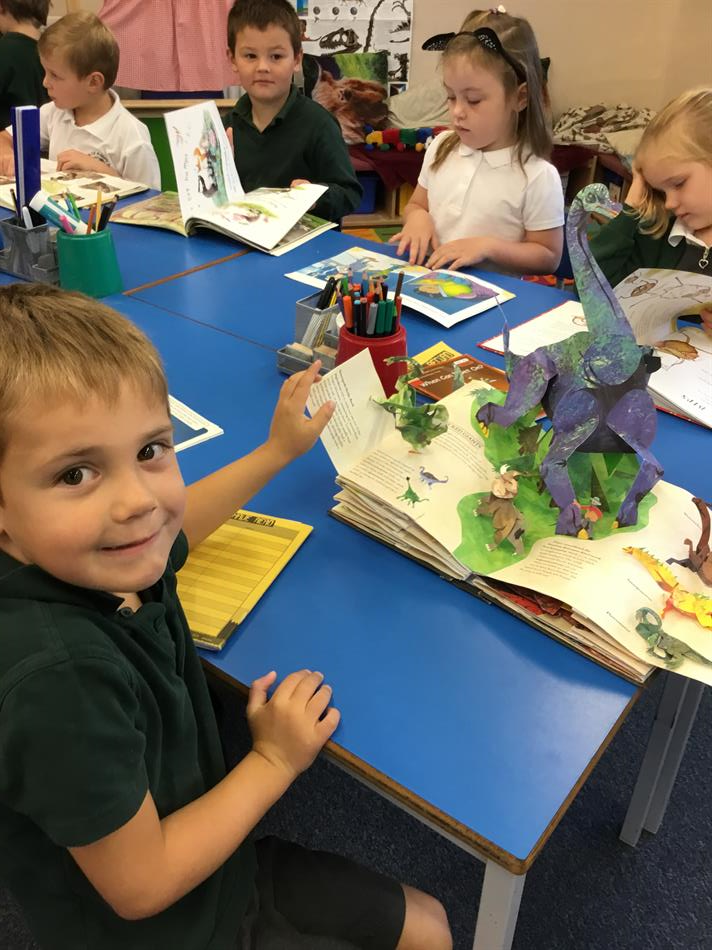
Our Federation believes that reading is a fundamental life skill which allows pupils to access the whole curriculum as well as the world around them. Reading is central to our ability to understand, interpret and communicate with each other as well as with society in which we live. We are dedicated and determined to ensure that our pupils have the skills they need to become independent and reflective readers across a wide range of literature and text types.
Statement of intent and implementation
Writing
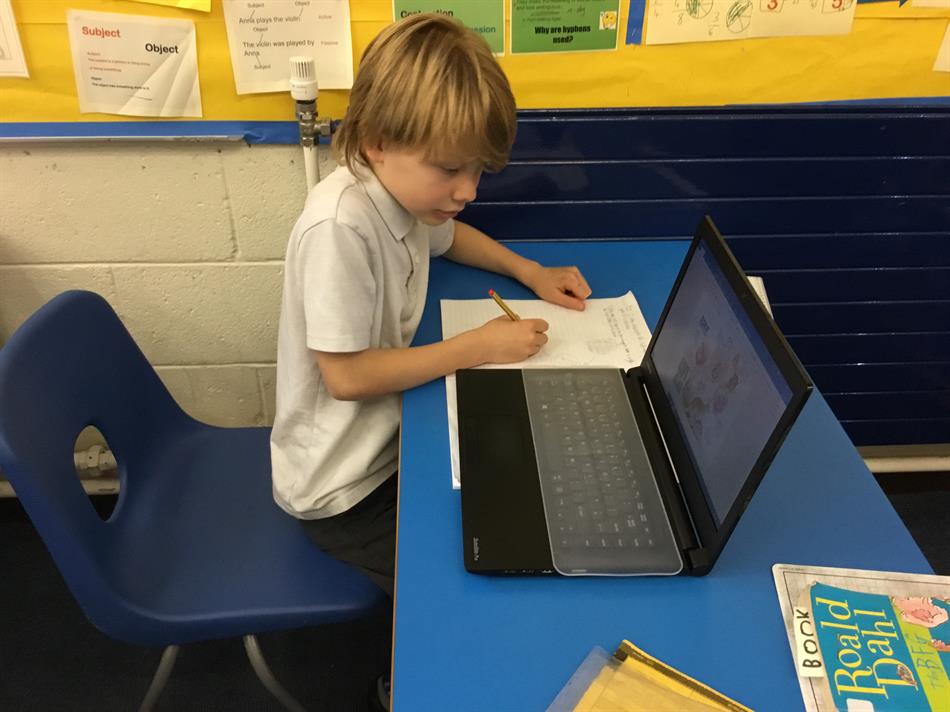 It is important for pupils to develop as independent, enthusiastic and expressive writers, who are able to write in a meaningful way. They should be able to use a range of forms for a variety of purposes and audiences, and be confident in their choice of genre and language style for a specific purpose. Pupils should also regard themselves as writers and value their own work and that of others.
It is important for pupils to develop as independent, enthusiastic and expressive writers, who are able to write in a meaningful way. They should be able to use a range of forms for a variety of purposes and audiences, and be confident in their choice of genre and language style for a specific purpose. Pupils should also regard themselves as writers and value their own work and that of others.
Spelling
Most people read words more accurately than they spell them. The younger the pupils are, the truer it is. We use phonics as our only approach to teach early reading. Our spelling teaching then continues on from where Little Wandle revised Letters and Sounds finishes. Children continue to use their knowledge of phonics to apply to the spelling of words.
Grammar & punctuation
Opportunities for teachers to enhance pupils’ vocabulary arise naturally from their reading and writing. As vocabulary increases, teachers show pupils how to understand the relationships between words, how to understand nuances in meaning, and how to develop their understanding of, and ability to use, figurative language.
Pupils are taught to use the elements of spelling, grammar, punctuation and ‘language about language’. Teachers teach pupils the vocabulary they need to discuss their reading, writing and spoken language. It is important that pupils learn the correct grammatical terms in English, and that these terms are integrated within teaching.
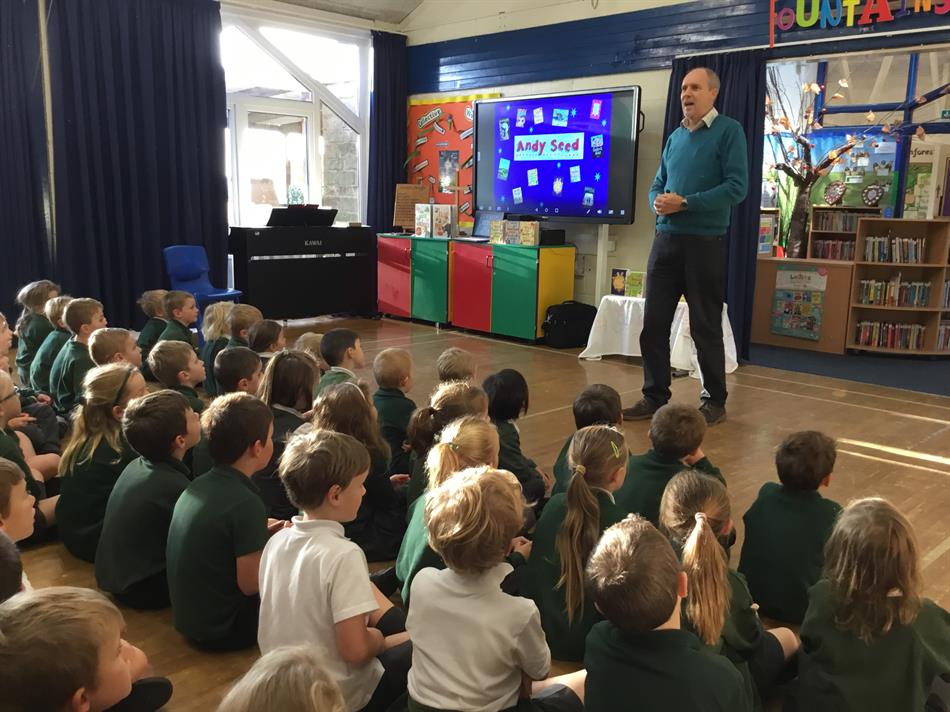 Spoken language
Spoken language
Spoken language underpins the development of reading and writing. The quality and variety of language that the pupils hear and speak is vital for developing their vocabulary and grammar and their understanding for reading and writing.
Mathematics
Statement of intent and implementation
Long Term Plan
Lesson Sequence Overviews:
Year1/2. Year2/3. Year3/4
Mathematics is taught through practical activities, mental maths, problem solving and structured investigational activities. Wherever possible mathematics is also taught through other curriculum areas and is the focus for one of our whole school themes – Made to measure.
Science
Statement of intent and implementation
Progression of Working Scientifically skills
Progression of Knowledge and Understanding
Long Term Plan
We see all aspects of science as a rational way of finding out about the world. Our children are encouraged to critically observe the world around them, ask questions and test out their ideas about the physical laws they encounter on a daily basis. We encourage our children to think about which of the scientific skills of enquiry they are using. Health education, including sex education, comes under the umbrella of science.
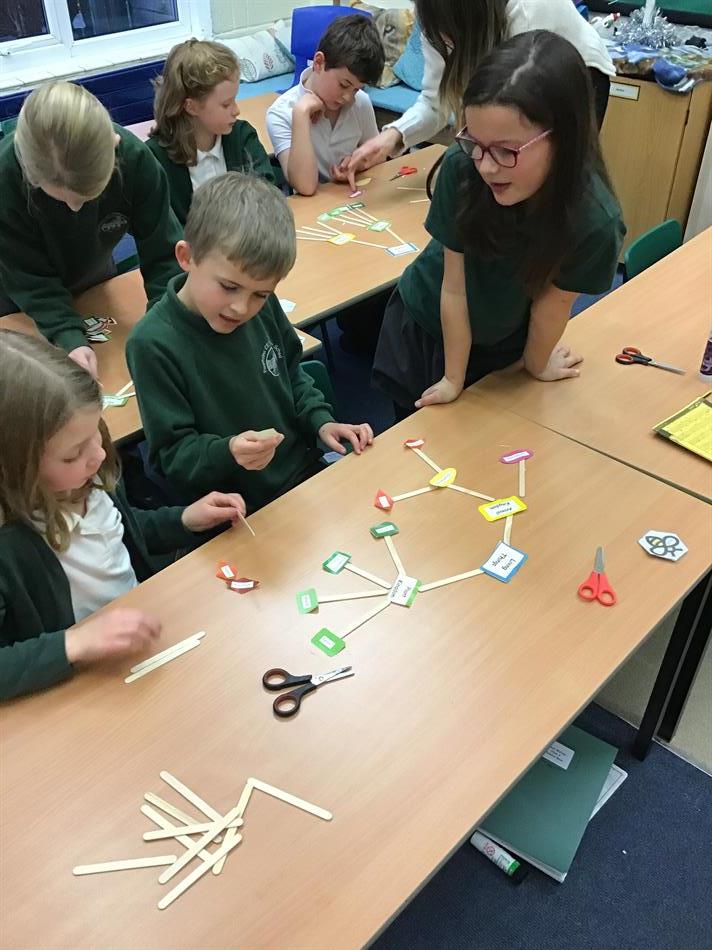
History
Statement of intent and implementation
Progression
Long Term overview
We inspire pupils’ curiosity to know more about the past. We encourage pupils to consider how the past influences the present, what past societies were like and the politics involved.
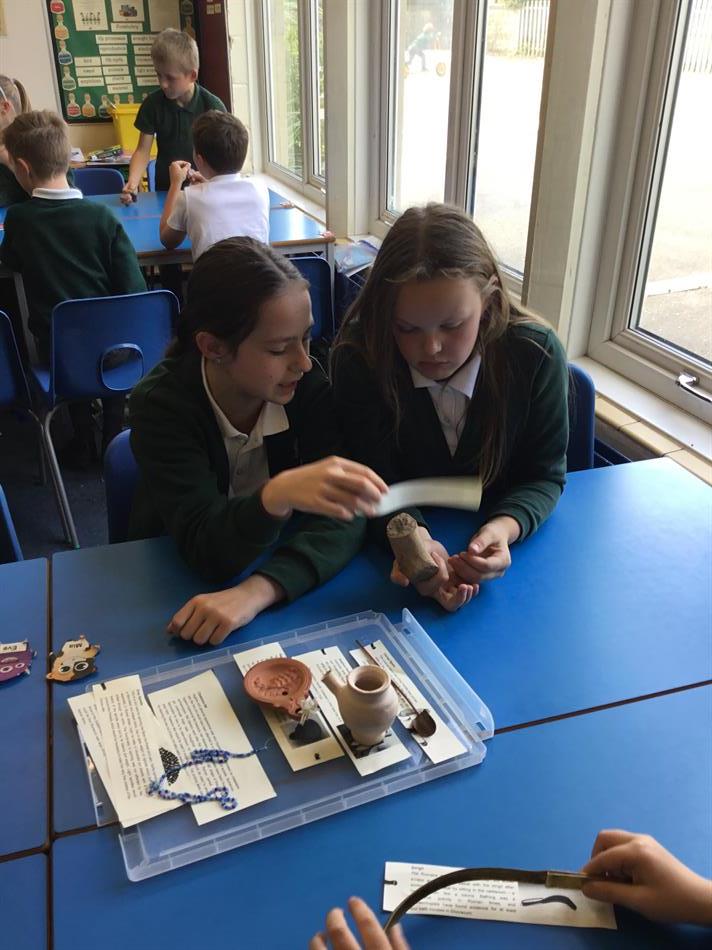
Geography
Statement of intent and implementation
Progression
Long Term overview
In geography, through our theme, we look firstly at our local environment with direct observation and investigation to make sense of our surroundings, and later to apply the knowledge in the context of the wider world.
Art and DT
Art statement of intent and implementation
-Progression of Skills.pdf-
Art Long Term Plan
DT Statement of intent and implementation
Progression for DT
-Progression of Skills DT.pdf-
DT Long Term Plan
The children are encouraged to express themselves in a variety of creative forms including painting, drawing, printing, sculpture, woodwork, needlecraft, singing, music making and cooking. The inspiration for developing creative skills is taken from the topic being studied and is backed up with an educational visit whenever possible.
Religious Education & Collective Worship
Statement of intent and implementation
RE Policy
Progression
Long Term overview
Collective Worship Policy
Long Term overview
As a Church of England school we aim to include the principles of a Christian faith within everything that we do and this is reflected in our school acts of worship at special services involving Sawley Church. The children take part in Collective Worship every day, and the clergy visit the school regularly along with members of the wider church family.
The North Yorkshire syllabus that we follow includes finding out about other faiths. The Dioceses encourage children from different cultural and ethnic backgrounds to work together to understand each other’s ways of life and to promote global issues.
Physical Education
At Fountains CE Primary School, we encourage all children to engage in a healthy lifestyle and understand the importance of physical activity. Staff are enthusiastic about PE, and this enthusiasm can be seen through the children’s attitudes towards the high-quality PE they receive.
We aim to develop the children’s knowledge, skills and understanding, so that they can perform and compete with increasing competence and confidence in a range of physical activities, which include: dance, games, gymnastics, athletics, swimming and water safety outdoor adventure activities.
Intent, Progression and Long Term Plan document
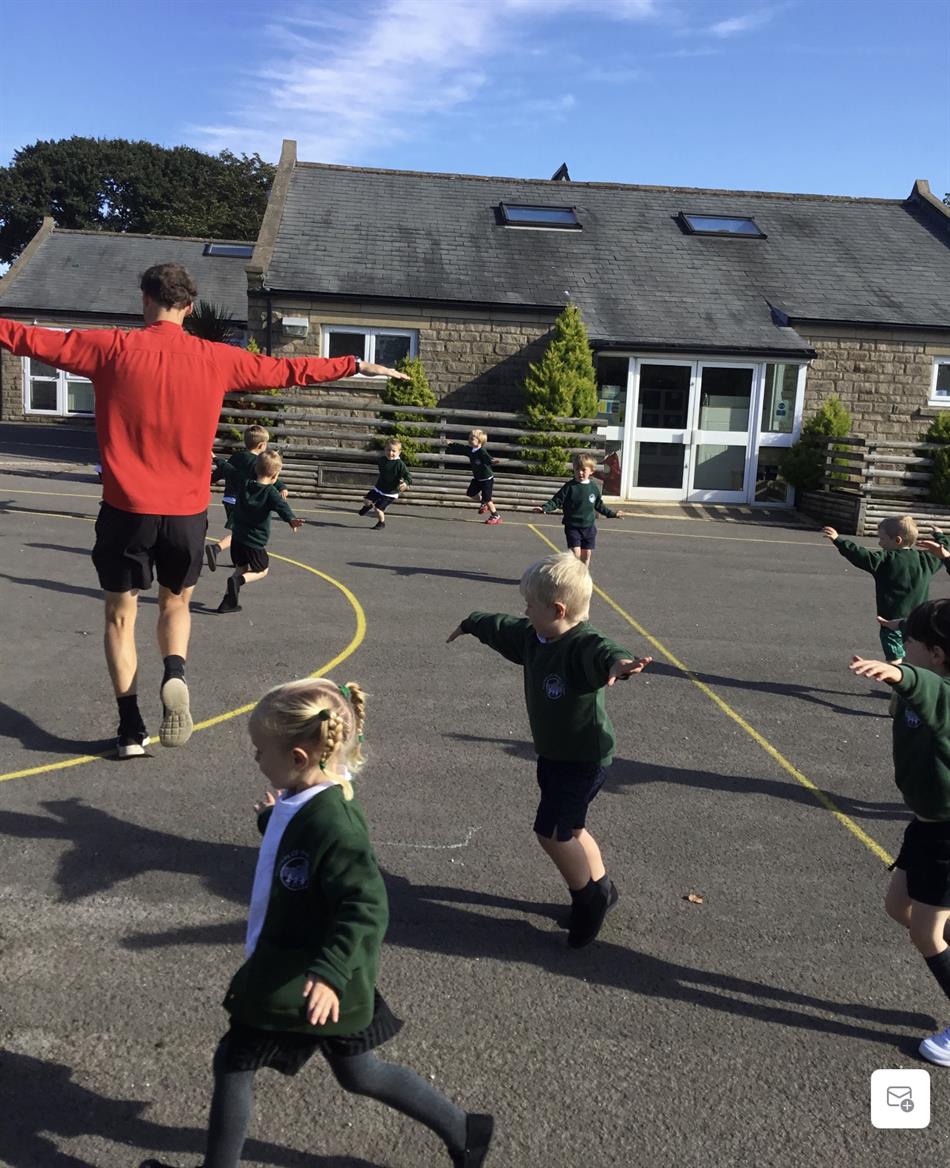
French
Statement of intent and implementation
Progression
Long Term overview
Pupils experience French in all of our classes. In years 3-6, where French is compulsory, children receive French lessons taught by our dedicated French teacher. Children in reception and years 1 and 2 are taught French by their class teacher and learn through songs and games.
Computing
Statement of intent and implementation
Progression for Purple Mash
Progression for Twinkl
Progression for Online Safety
Long Term overview
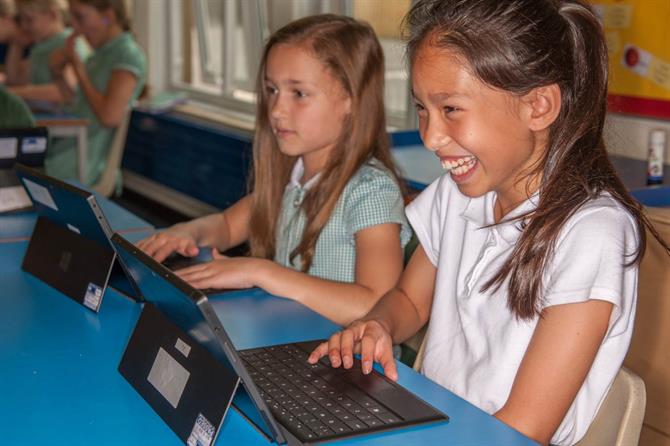 Our school benefits from having net-worked computers in every classroom and a net book or tablet for each child in years 1 to 6. Each class also has 2 class cameras and Class 1 benefits from having its own iPad. Word processing skills, data storage, retrieval, programming, coding and e-safety are just some of the topics covered in our computing curriculum. The children also get the chance to use ICT in all subjects, whenever it enhances the curriculum. We subscribe to several online resources to enhance the children’s computing skills, such as; Sumdog and Purple Mash.
Our school benefits from having net-worked computers in every classroom and a net book or tablet for each child in years 1 to 6. Each class also has 2 class cameras and Class 1 benefits from having its own iPad. Word processing skills, data storage, retrieval, programming, coding and e-safety are just some of the topics covered in our computing curriculum. The children also get the chance to use ICT in all subjects, whenever it enhances the curriculum. We subscribe to several online resources to enhance the children’s computing skills, such as; Sumdog and Purple Mash.
E-safety
All computers and laptops have controlled Internet access with safeguards used to ensure no child gains access to unsuitable material. The children have their own individual usernames and passwords when using programmes online that we have subscribed to. We ensure that each year children begin their computing sessions looking at e-safety and how important it is to stay safe online.
There is a wealth of advice and help for parents and children on how to use the internet and new technologies safely and responsibly at home and we have included some useful website links below:
https://www.saferinternet.org.uk/advice-centre
http://www.kidsmart.org.uk
Music
Statement of intent and implementation
Progression
Long Term overview
We place great emphasis on developing a love of music throughout the school, giving every pupil the opportunity to play an instrument. Starting with listening games, action rhymes and songs children gain a strong aural and vocal grounding which they can use to further develop their musical ability with the use of instruments and ICT. In addition to group work in class lessons children may choose to learn to play various instruments from our in-house teachers. These include the recorder, violin, cello, flute, clarinet, saxophone, guitar and piano.
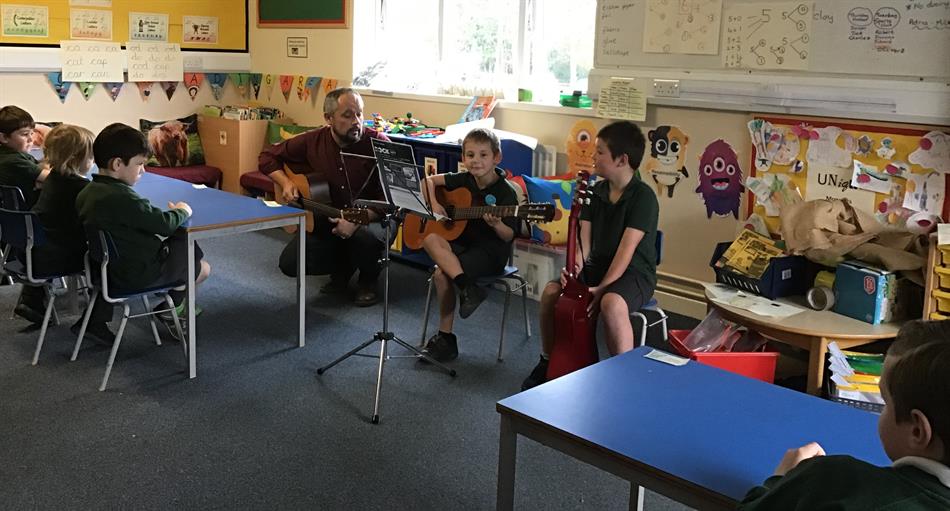
PSHE
Statement of intent and implementation
Progression
Long Term overview
At our Federation, we teach Personal, Social, Health Education as a whole-school approach to underpin children’s development as people and because we believe that this also supports their learning capacity. Jigsaw is our chosen scheme which covers all areas of PSHE for the primary phase including statutory Relationships and Health Education.